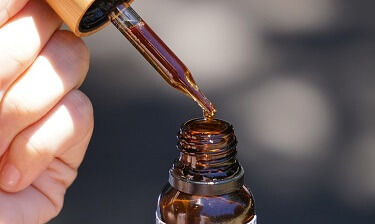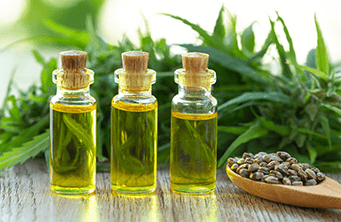Chances are you, or someone you know, have already experienced CBD oil benefits. You may already have some in your medicine cabinet.
If you are new to the world of CBD tinctures, where do you begin? You probably have many questions about the basics and the best way to dose. Follow along on this quick introduction to all aspects of CBD tinctures.
What is CBD Tincture?
Firstly, what is a tincture? Tinctures have been around since 1000 AD. They have been used orally as medicine for thousands of years—elderberry tinctures, turmeric, echinacea, and cannabis tinctures are just some of many.
Alcohol-based tinctures are common, but there are a few other ways to make them as well. Common carrier oils for CBD include MCT oil, avocado oil, and coconut oil. CBD tinctures come in small bottles with various concentrations. With the dose dropper, they are easy to dose and avoid risks associated with smoking. Allowed to absorb under the tongue, these tinctures take effect quickly.
What are the many CBD oil benefits you can expect? Canadians report relief from migraines, anxiety, sleep disorders, psoriasis, arthritis, eating disorders, and more. CBD is taking over the cannabis industry, creating some amazing stuff and wowing people with its groundbreaking properties. It is now common to be able to buy CBD online in Canada as well.
How to Properly Dose CBD
Figuring out your dose with CBD hemp oil is important but can also be overwhelming. There are so many tinctures, with so many numbers on their labels. Some tinctures range from 100mg to as high as 2000mg. No matter what bottle you have on hand, you’ll need to figure out your personal dose.
The great thing about CBD is that it’s safe and well-tolerated, even in high doses used within research studies. Remember, this is not THC, and you won’t feel high or any of the other common side effects from THC-rich cannabis.
But, getting to know your personal dose is nevertheless important. CBD oil is mellow, but you don’t want to waste any product.
- Start with 5 to 10 drops from your CBD tincture dose dropper before bed.
- Maintain the baseline dose for three to four days.
- If you experience no CBD oil benefits, increase the dose by 50 percent (10 to 20 drops).
- Maintain the new dose for three to four days.
- Repeat until you feel the positive effects.
- If at any point you experience adverse side effects, like sleepiness or diarrhea, reduce the dose. You may also wish to split into smaller doses during the day.
Does CBD Have Side Effects?
Because CBD is a non-psychoactive cannabis compound, you will not feel stoned while consuming it. It is safe, but taking large amounts of CBD will make you feel a little sluggish. Some people also report diarrhea with large doses.
The World Health Organization has declared, “CBD is generally well tolerated with a good safety profile.” But, as per their assessment, “reported adverse effects may be as a result of drug-drug interactions between CBD and patients’ existing medications.”
If you currently take prescription medications and are experiencing some of the mild effects of CBD, you may wish to consult your doctor.
Have You Experienced CBD Oil Benefits?
Canadians across the country, old and young alike, are exploring CBD oil benefits for a range of conditions. Everyone, even parents and grandparents, is curious about what this non-intoxicating cannabinoid can do. From sleep to mood to inflammation, this little cannabidiol has a big future in over-the-counter relief.





